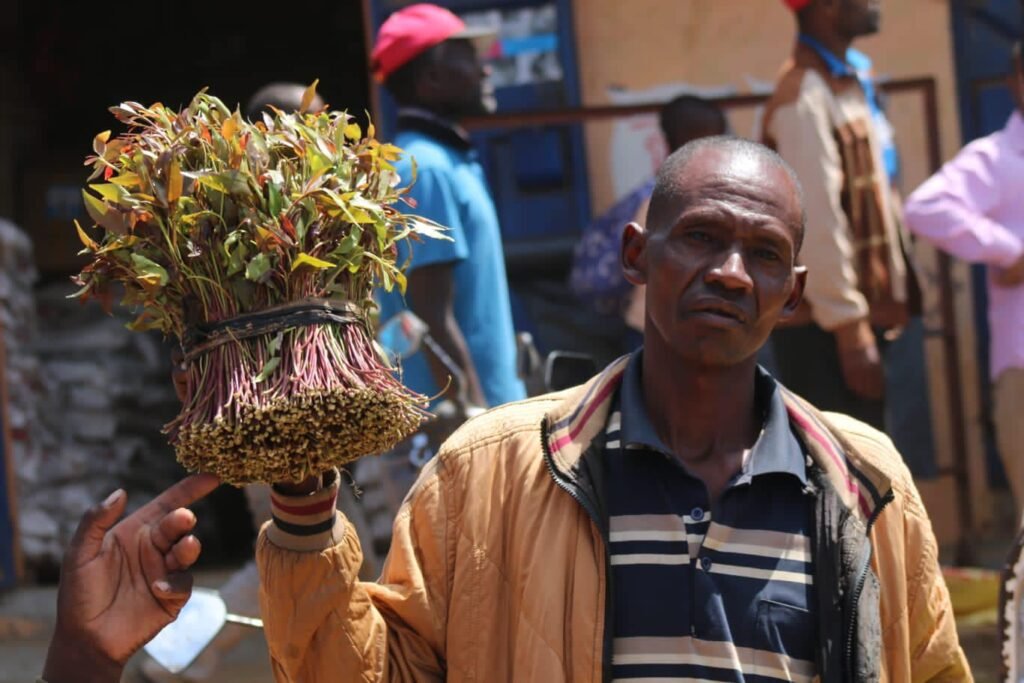Despite its blacklising in South Sudan, you will find it being sold in an openair market in Kakuma, a suburb of the capital next to United Nation Mission in South Sudan (UNMISS) headquarters.
We bump onto Akec Wol, a 16-year-old boy, wearing a black pair of oversized jeans with big pockets, running up and down trying to sweet-talk prospective clients about the quality and quantity of the bundles of khat twigs in his hands. He says that Kakuma is just one of the several open-air markets for the stimulant in Juba.
“We have selling spots in Nyakuron, Atla Bara and almost all suburbs of Juba,” Akec says as he keeps his gaze from side to side in search of more clients. The open-air market is thronged by foreigners and South Sudanese alike who enjoy khat. According to scientists, its leaves or twigs have a stimulant effect when chewed. Elizabeth Hartney, a phycologist and Director of the Centre for Health Leadership and Research at Royal Roads University, Canada, says people who use khat typically chew fresh leaves because the active components of the plant break down quickly as they dry out.
Dried leaves are sometimes used as a tea, although the effects are less potent. “Khat leaves are usually green or greenbrown. When fresh, the leaves have a glossy appearance. As they dry, they turn leathery yellow-brown. Given its appearance, it can easily be mistaken for Marijuana. The leaves of the khat plant are often packed together in a bundle

